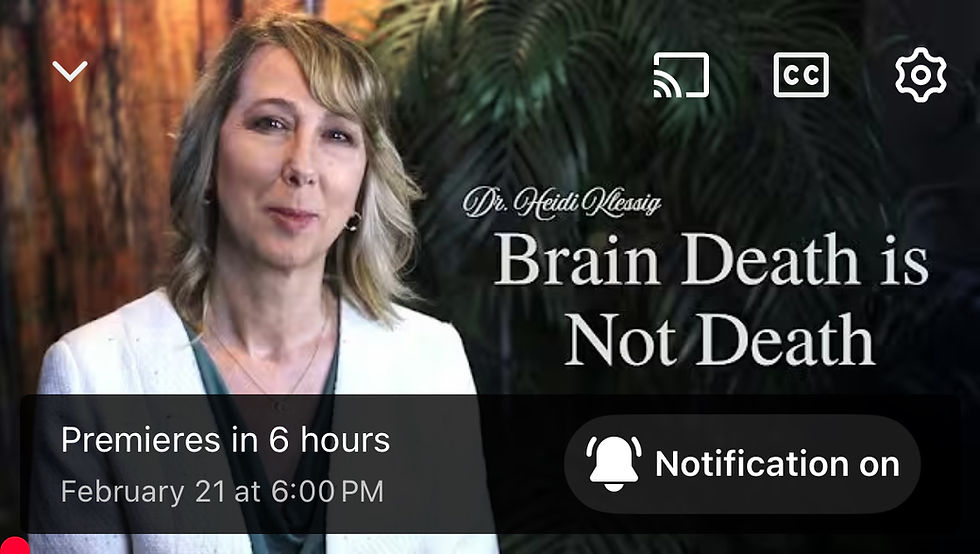New Podcast on The Speaker Salon with Alana Newman
- Respect for Human Life

- Jul 8, 2024
- 2 min read
By Heidi Klessig MD
I was honored to join Michael Vacca, M.Theol., JD and Paul Byrne MD in an in-depth discussion of the brain death fallacy on The Speaker Salon with host Alana Newman. This podcast would be a great introduction to the topic of brain death for anyone new to the subject, and is filled with facts, compassion, and mercy, as well as action steps.
I begin the discussion by reviewing the history of the brain death concept: an idea foisted on the public without any facts, studies or evidence. In fact, the American Academy of Neurology recently admitted that the concept of brain death has a “lack of high-quality evidence!” The 2008 President’s Council on Bioethics agreed that brain death is not biological death, and changed the rationale for brain death from biology to philosophy. Now, brain death is based upon disability (what we can or cannot do) rather than upon what we are – human beings, no matter how mentally disabled.
Michael Vacca exposes that the brain death concept depends upon a sleight of hand: that some human beings are somehow no longer human persons. And he correctly points out that all criteria distinguishing human persons from human beings are purely arbitrary. Historically, these arbitrary distinctions have been a way for the powerful to deny rights to the marginalized or disabled. The only objective criteria is that we are persons because we are human beings. Vacca also relates his ongoing advocacy on behalf of medically marginalized patients and his personal experience with a “brain dead” family member.
Dr. Paul Byrne is always worth hearing as he has been speaking against the brain death fallacy for over 50 years! He details the case of a premature baby who had two flatline EEGs (which were interpreted by the neurologist as being consistent with brain death) but who grew up, married, and raised a family. He reviews his wide-ranging experience fighting the brain death concept on philosophical, medical, and legal levels, and his work on behalf of Jahi McMath and other “brain dead” patients to the present day.
Another thing I was quite impressed with was how Alana Newman traces out the legal cases and exposes the deliberate slow march leading to the current organ donation industrial complex.
Toward the end, we discussed the need for tempering justice with mercy as people wake up to the fact that brain death is not death, but rather an ethical choice masquerading as a medical fact.
Many thanks to Alana Newman for putting this tremendous discussion together -- it’s definitely worth a listen!




Comments